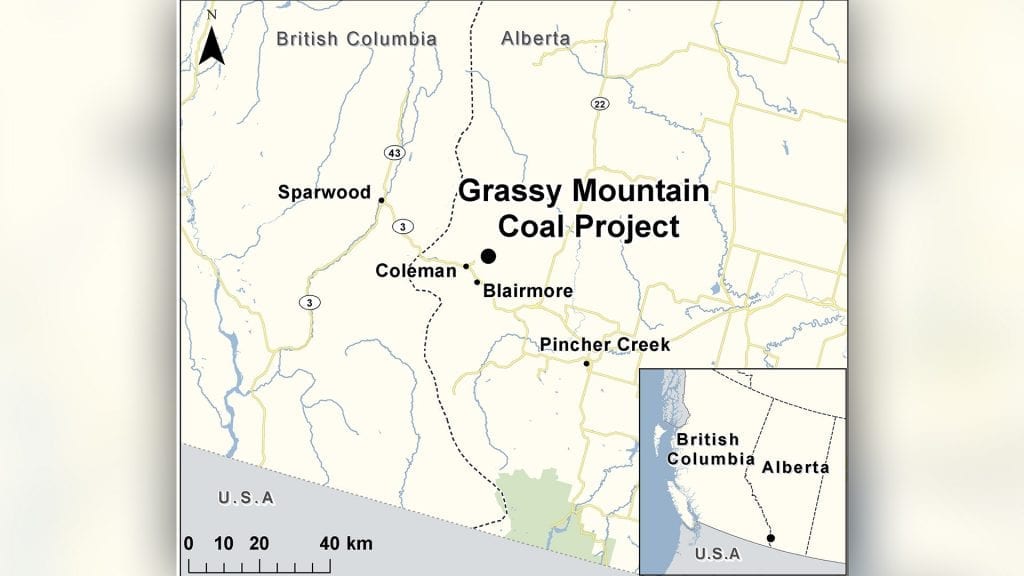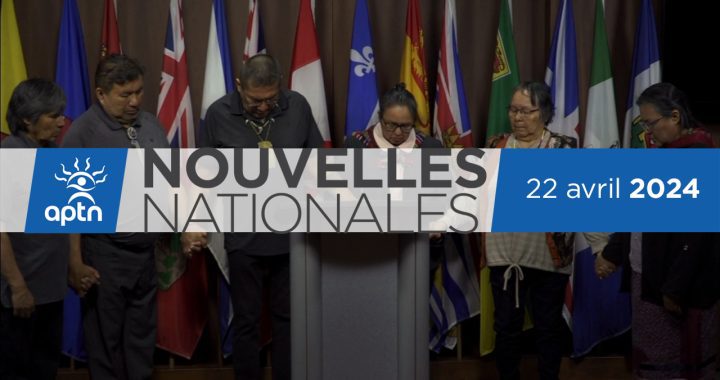
A map shows the location of the proposed Grassy Mountain Coal Mine. Government of Canada
Restoring Alberta’s coal policy may allay some fears but the fight to stop the Grassy Mountain Coal Project continues, says the head of Indigenous-led Niitsitapi Water Protectors.
“It is definitely a step forward,” said Natasha Calf Robe, who opposes coal mining in the province.
“I am still really concerned about the lack of First Nations’ recognition in this entire process.”
The move to restore the 1976 Coal Development Policy that was rescinded last June means lawsuits threatened by four First Nations in Alberta are now moot.
The lawsuits alleged Energy Minister Sonya Savage abandoned the policy without consulting with Indigenous communities – violating their treaty rights.
The beginning
“What we’re doing today — keeping the 1976 coal policy in place and committing to consult on a modernized policy — is what we should have done in the beginning,” Savage said Monday.
“We didn’t do it then, but we’re going to do it now.”
Savage also announced a ban on mountaintop mining, but the ban doesn’t apply to the open-pit Grassy Mountain and Tent Mountain projects in the Rocky Mountains, Calf Robe said in an interview.
“Restoring the coal policy is a step in the right direction but there are still projects in place…,” said the member of the Blood Tribe south of Calgary.
“The government has made an exception to keep those ones active.”
Coal policy
Savage said she back-tracked after hearing from Albertans unhappy with the way her government was moving forward on coal mining.
She said “a new modern coal policy” will be written after province-wide, public consultation in 2021.
The province won’t issue any new coal leases until consultation is complete, she added.
The old policy created four categories of land with different sets of rules for coal mining.
“The coal policy helps to protect Category 2 land,” Calf Robe said, “but what we really need is this written into legislation for the protection of the eastern slopes (of the Crowsnest) and the head waters (of the Oldman River).”
READ MORE:
Proposed coal mine will ‘decapitate’ Grassy Mountain in southern Alberta: AWA
Calf Robe said the government is wrong to permit mining in environmentally and culturally sensitive areas for First Nations – particularly without consultation – and other groups such as ranching, fishing and tourism.
“The policy is something that was needed and now, as First Nations and as Albertans, we have now realized that is not enough to protect these areas of land…This has woken up a lot of people just how much at risk these places are, just how much at risk our water is.”
Calf Robe said she is preparing a petition asking the federal government to conduct a regional environmental assessment of the Grassy Mountain Coal Project, which will sit on the traditional territories of the Blood and Piikani nations in Treaty 7.
“The (joint provincial-federal) impact assessment only looked at Grassy Mountain,” she said. “It did not look at the cumulative impacts of all proposed coal mines in the area or the damages that exploration is currently having.
“We are calling on the government of Canada to look at all projects not just on a project by project basis.”
Grassy Mountain
The band councils of the Blood and Piikani, member of the Blackfoot Confederacy (Niitsitapi) in southern Alberta, have voiced support for the Grassy Mountain project and the potential jobs and economic development it will create for their members. But not all band members agree with their positions.
While the president of the Coal Association of Canada declined to comment on Savage’s most recent announcement, the Canadian Parks and Wilderness Society (CPAWS) welcomed the news.
“I think everyone should be really proud of themselves for causing this backtracking on the coal policy,” said CPAWS spokesperson Katie Morrison.
Jessie Cardinal, of the Indigenous-led Keepers of the Water watchdog group, said her organization is also keeping an eye on major coal development in Alberta and its “voracious need” for fresh water.
“Coal mining needs a lot of water to operate and that puts industry in competition with communities and their drinking water,” she said.









